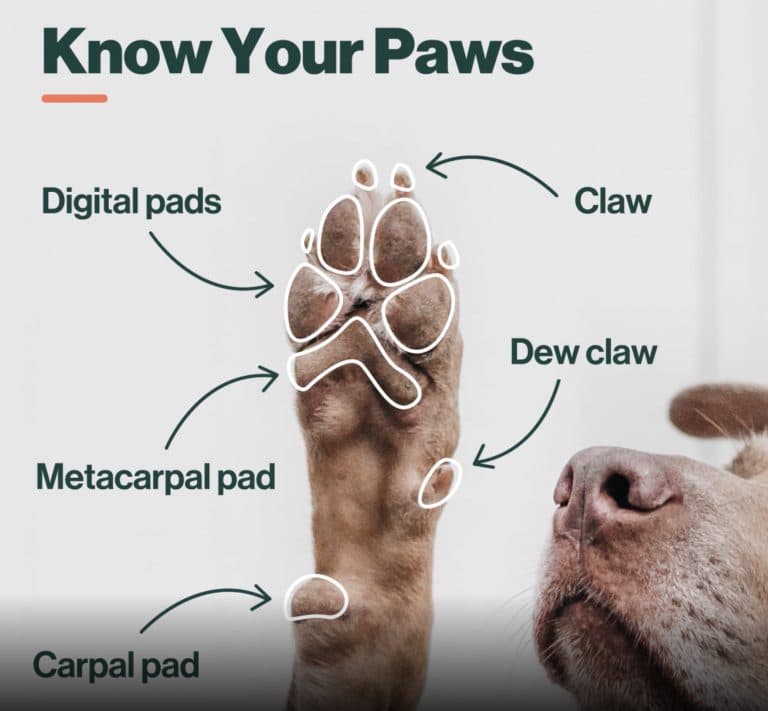ALL ABOUT PAWS
2023-07-01

All About Paws
Everything You Need to Know About Dog Paws
Before we talk about the overall shapes and healthiness of dog paws, you must know the general anatomy of your pup’s paws. Each of these parts is important for your pup’s health, from toes to pads. Dogs feet consist of:
- Metacarpal pad: the large pad on the bottom of the foot, which holds most of the dog’s weight
- Digital pads: The smaller pads on the toes (sometimes known as “toe beans”)
- Carpal pad: the extra pad further up your dog’s ankle, only on the front legs of your dog.
Claws: your dogs’ claws, meant for digging and scratching - Dewclaws: the smaller claw on the side of the paw, similar to (but not the same as a thumb). Some dogs have two dewclaws, like the Great Pyrenees
Healthy Dog Paws vs. Unhealthy Dog Paws?
If you’re worried about your dog’s paws, the best thing you can do is look at them. Healthy dog paws aren’t easy to pick out, but you can easily tell when your dog’s paws have problems. If any of these symptoms are there, take action and help your pup get more comfortable:
- Dry or cracked paw pads (DIY Paw Balm)
- Long, broken, or curled claws
- Red or inflamed paws
- Limping, whining, or favoring a paw
- Excessive licking or biting of the paws
- Discharge, scabbing, bleeding, or smell
Frito feet?
The corn chip smell is a natural smell for most dogs’ paws. It’s a natural byproduct of the yeast and bacteria that gather in the dog’s paws. Although this sounds scary, it’s fine in small amounts. Dogs keep their paws wet and clean by licking them, allowing small amounts of the bacteria to grow.
It’s ideal to have no corn chip smell for your home and the dog’s health. However, a small number of bacteria will likely grow between your dog’s toes, and it’s not a dangerous substance unless it becomes excessive.
As long as the smell isn’t excessive or your dog isn’t constantly licking its paws, you don’t have to worry about the number of bacteria in your dog’s paws. If you see your pup constantly licking or the smell becomes too much, talk to a vet about an anti-fungal medicine to keep the growth at bay.